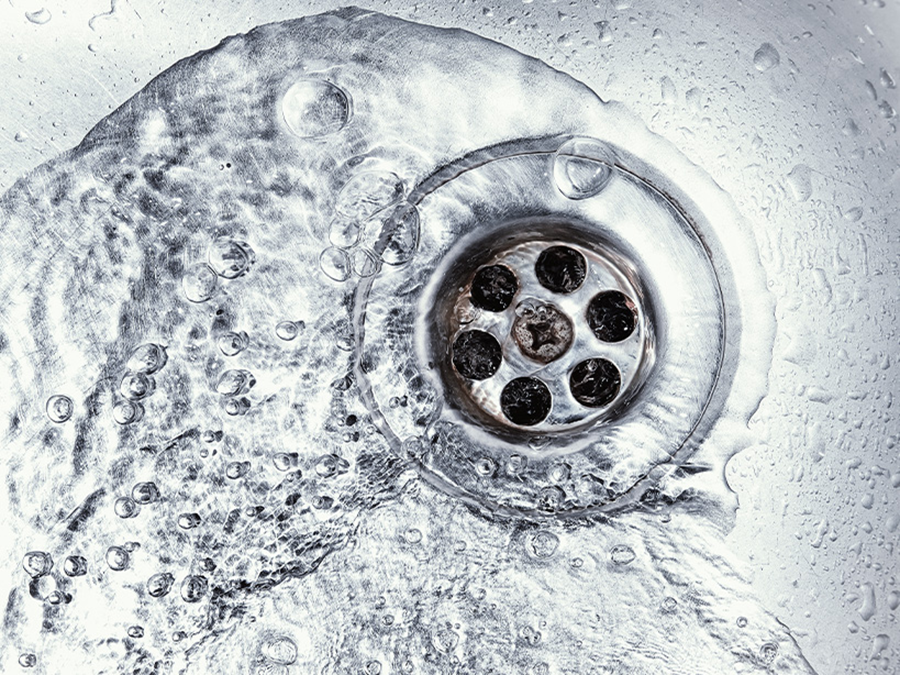A properly functioning sewer system is essential for maintaining a clean and healthy living environment. When your main sewer line becomes clogged or damaged, it can lead to unpleasant and costly problems.

In this blog, we will explore the causes of main sewer clogs, the warning signs to watch out for, and the replacement options available to ensure the smooth operation of your sewer system.
Causes of Main Sewer Clogs
Main sewer clogs can be caused by various factors, and understanding these causes can help you take preventive measures. Some common causes include:
- Tree Roots: Tree roots are one of the most frequent culprits when it comes to main sewer clogs. Roots can infiltrate your sewer pipes through small cracks or joints, seeking moisture and nutrients. Over time, they can grow and block the pipe, causing backups.
- Grease and Oil Buildup: Pouring grease and oil down your drains can lead to the accumulation of fatty deposits inside your sewer pipes. These deposits can constrict the flow of wastewater, ultimately leading to clogs.
- Foreign Objects: Accidentally flushing non-biodegradable items like wet wipes, paper towels, or hygiene products down the toilet can contribute to sewer clogs. These items do not break down easily and can get stuck in the pipes.
- Old and Deteriorating Pipes: As sewer pipes age, they can become more susceptible to damage and corrosion. Cracked or collapsed pipes can create obstructions in the sewer line.
- Fluctuating Temperatures: Extreme temperature changes can cause the ground to shift, leading to misaligned or damaged sewer pipes.
Warning Signs of Main Sewer Clogs
Recognizing the warning signs of a main sewer clog is crucial for early intervention and prevention of extensive damage. Some common indicators include:
- Slow Drains: If multiple drains in your home are slow to empty, it could be a sign of a main sewer line clog. Water may back up into sinks, tubs, or toilets.
- Gurgling Sounds: Unusual gurgling or bubbling sounds coming from your drains when you flush the toilet or use the sink could indicate a clog.
- Foul Odors: Sewage odors emanating from your drains or yard could be a sign of a sewer issue.
- Backups: Frequent backups in your toilets and drains, especially after using appliances like the washing machine or dishwasher, may indicate a main sewer clog.
- Puddles in the Yard: If you notice water pooling in your yard, especially near where the sewer line runs, it could be a sign of a clogged or damaged sewer pipe.
Replacement Options for Main Sewer Clogs
When you encounter a main sewer clog that cannot be resolved with simple plumbing methods, it may be time to consider replacement options. Here are some common choices:
- Traditional Dig and Replace: This method involves excavating the old sewer pipe and replacing it with a new one. While effective, it can be expensive and disruptive to your property.
- Trenchless Sewer Replacement: Trenchless methods, such as pipe bursting and pipe lining, are less invasive and can save you from extensive excavation. These techniques involve creating a new pipe inside the existing one or breaking the old pipe while pulling in a new one.
- Hydro Jetting: Hydro jetting is a high-pressure water jetting technique that can clear obstructions and clean the interior of sewer pipes. It’s a preventive maintenance option that can help prevent future clogs.
- Regular Maintenance: Regular sewer line inspections and cleaning can help prevent clogs and detect issues early on, reducing the need for replacement.
Main sewer clogs can disrupt your daily life and lead to costly repairs if not addressed promptly. By understanding the causes and recognizing the warning signs, you can take action to prevent clogs and ensure the proper functioning of your sewer system. In cases where replacement is necessary, consider the various options available to minimize disruption and cost while restoring your sewer system to full functionality. Remember that consulting with a professional plumber is crucial for accurately diagnosing and addressing main sewer clogs.